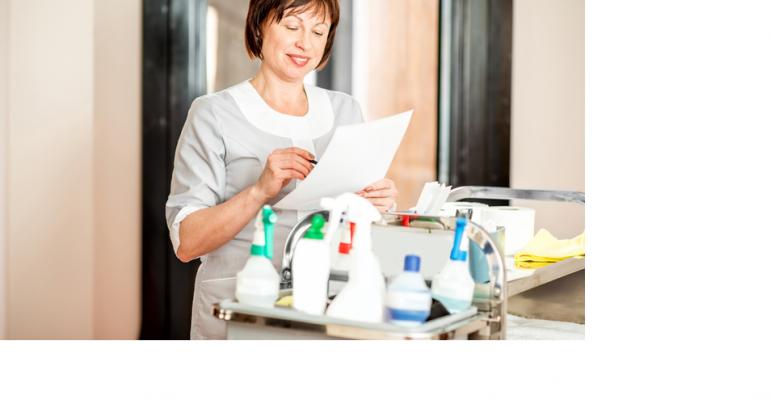This week, Marriott International introduced what it calls “a multi-pronged approach” to cleaning and disinfecting all properties across the company’s 30 brands, with a greater emphasis on decontamination procedures in light of the worldwide coronavirus pandemic.
“We want our guests to understand what we are doing today and planning for in the near future in the areas of cleanliness, hygiene, and social distancing so that when they walk through the doors of one of our hotels, they know our commitment to their health and safety is our priority,” said Arne Sorenson, Marriott International’s president and CEO, in an April 21 press release. “It’s equally important to us that our associates know the changes we are making to help safeguard their health as they serve our guests.”
As a result, there will be a number of hygienic enhancements at properties for the foreseeable future. Specific areas of focus include:
Cleaning High-Touch Surfaces. In public spaces, Marriott now requires that surfaces are treated with hospital-grade disinfectants and that this cleaning is done more frequently. In guest rooms, the company now requires that all surfaces are cleaned with hospital-grade disinfectants, and that disinfecting wipes are in each room for guests’ personal use. In addition to rolling out electrostatic sprayers to disinfect large areas, the company is also testing ultraviolet light technology for sanitizing guest-room keys.
Social Distancing. To help minimize the risk of person-to-person transmission of bacteria or viruses, Marriott will use signage in its lobbies to remind guests to maintain social-distancing protocols and remove or rearrange furniture to allow more space between people. Marriott is installing more hand-sanitizing stations at hotel entrances, near the front desk, at elevator banks, and in fitness and meeting spaces, while also considering adding partitions at front desks and working with its suppliers to make more masks and gloves available to associates. Further, at about 3,200 of Marriott’s 7,000 hotels, guests can use their mobile-phone to check-in, enter guest rooms, make special requests, and order room service that is specially packaged and delivered to guest-room doors without human contact.
Food Safety. Marriott’s food-safety program includes enhanced sanitation guidelines and training videos on hygiene and disinfecting practices that augment existing training on safe food-preparation and food-service practices. The company is also modifying its in-room dining practices and designing new approaches to buffets.
In addition to these changes, the company created the Marriott Global Cleanliness Council, which is focused on developing higher hotel-cleanliness standards, norms, and behaviors to minimize health risks for guests and associates.
The Council, chaired by Ray Bennett, chief global officer, global operations, Marriott International, will get input from outside experts as well as leaders from internal disciplines such as housekeeping, engineering, food safety, occupational health, and associate well-being. The Council includes Dr. Ruth L. Petran, senior corporate scientist, food safety & public health for Ecolab, a leading firm in water, hygiene, and infection prevention solutions and services; Dr. Michael A. Sauri, infectious disease specialist at Adventist Healthcare; Dr. Richard Ghiselli, head of the School of Hospitality & Tourism Management at Purdue University; and Dr. Randy Worobo, professor of food microbiology in the Department of Food Science at Cornell University.
“We want our guests to know that we are doing everything we can to welcome them back to a safe and clean hotel environment when they start traveling again,” said Bennett.





